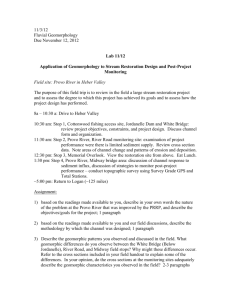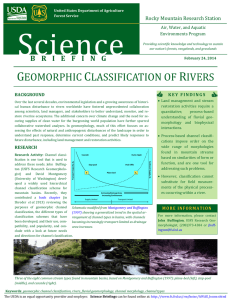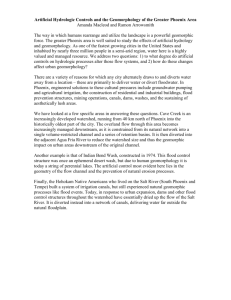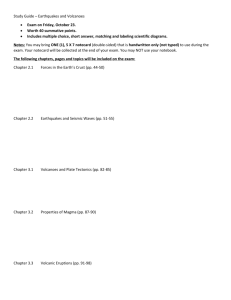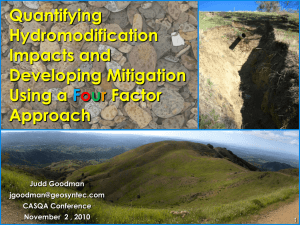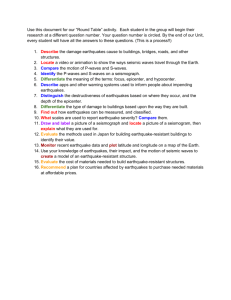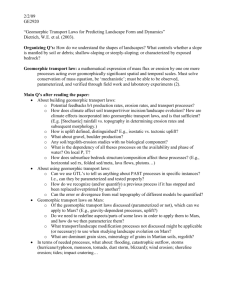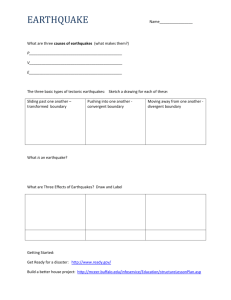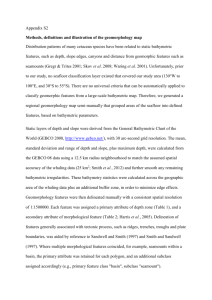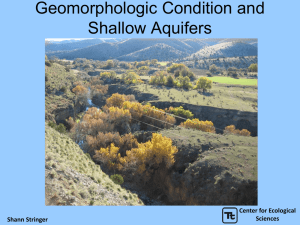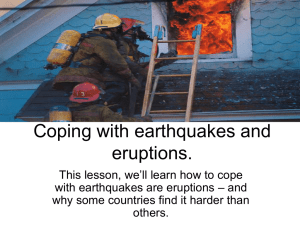Hovius abstract
advertisement
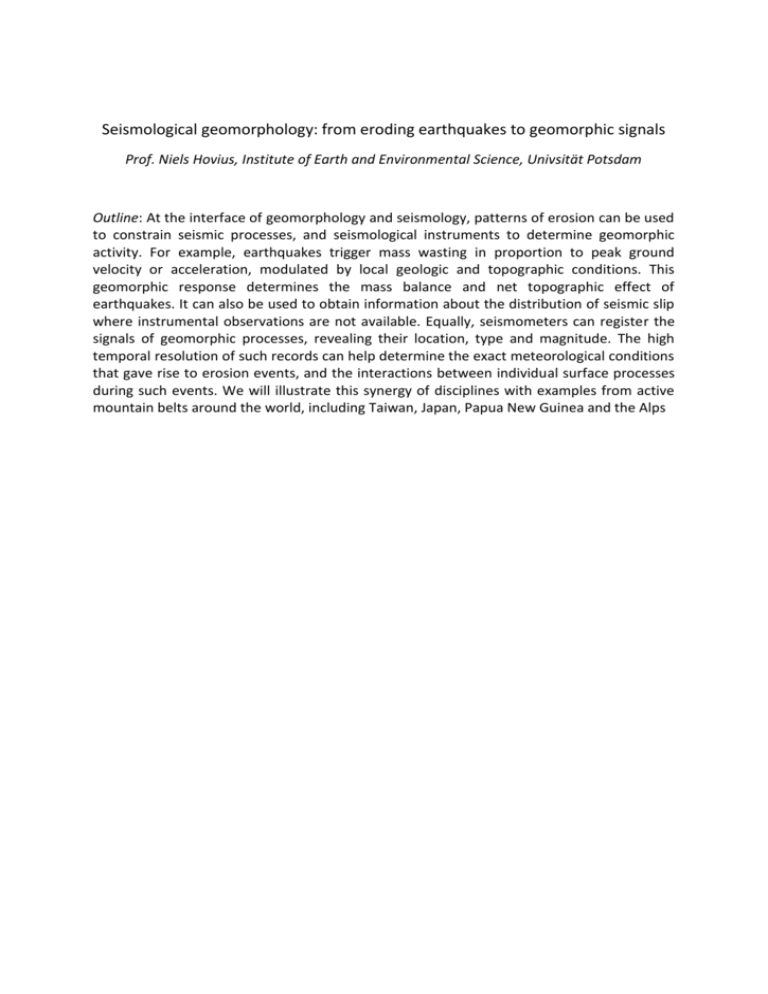
Seismological geomorphology: from eroding earthquakes to geomorphic signals Prof. Niels Hovius, Institute of Earth and Environmental Science, Univsität Potsdam Outline: At the interface of geomorphology and seismology, patterns of erosion can be used to constrain seismic processes, and seismological instruments to determine geomorphic activity. For example, earthquakes trigger mass wasting in proportion to peak ground velocity or acceleration, modulated by local geologic and topographic conditions. This geomorphic response determines the mass balance and net topographic effect of earthquakes. It can also be used to obtain information about the distribution of seismic slip where instrumental observations are not available. Equally, seismometers can register the signals of geomorphic processes, revealing their location, type and magnitude. The high temporal resolution of such records can help determine the exact meteorological conditions that gave rise to erosion events, and the interactions between individual surface processes during such events. We will illustrate this synergy of disciplines with examples from active mountain belts around the world, including Taiwan, Japan, Papua New Guinea and the Alps
